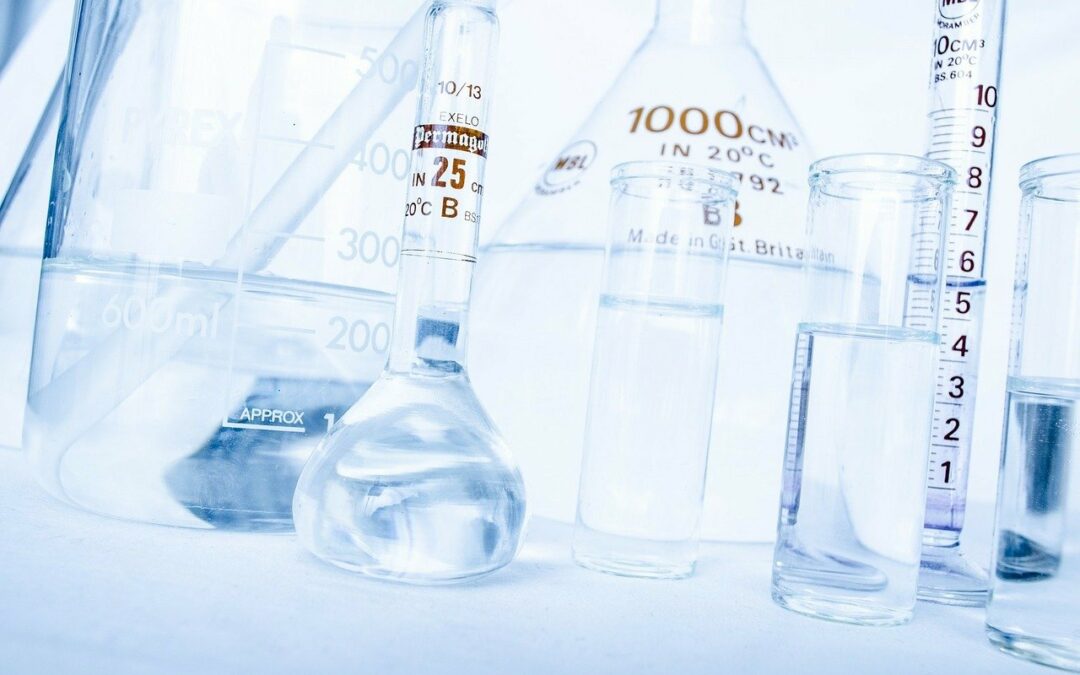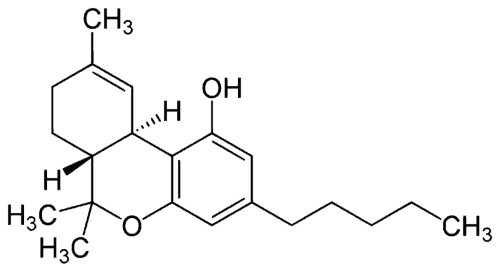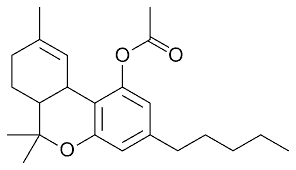
THC-O Acetate: Will it replace Delta 8 THC?

As more states begin banning and regulating Delta 8 THC, manufacturers are looking for alternatives to skirt the rules. Bring in THC-O Acetate.
Before we dive into the latest designer cannabinoid that aims to replace Delta 8 THC as it becomes banned in several states and regulated in some others, let’s briefly run through what Delta 8 THC is itself.
All cannabinoids, from CBD to THC and beyond begin as CBGA. Because of the shared molecular structure of cannabinoids, manipulating them is simpler than it may seem. While Delta-8 is relatively new, producers have been using these methods to manipulate cannabinoids for a long time to find exotic new cannabinoids.
While Delta-8 THC exists in a wide range of cannabis strains, it is in minuscule, trace amounts. To extract and purify Delta-8 from raw plant material with less than one percent of the targeted cannabinoid is unprofitable. This is why producers have begun converting other, more prevalent cannabinoids like CBD and Delta-9 THC into Delta-8.
Through a synthetic isomerization process, CBD is combined with a solvent to create Delta-8 THC. This is why the most popular products are vape cartridges and gummies. Cannabis cannot produce enough Delta-8 on its own.
Why Delta 8 THC is being banned
If you read the above section and started thinking, “That sounds pretty similar to those designer cannabinoids like spice that hurt a lot of people”, you would be on the right track. That is why over a dozen states have already banned Delta 8 THC.
Due to grey areas in the 2018 Farm Bill which legalized hemp and all of its derivatives (besides Delta 9 THC), producers of Delta 8 believe they technically aren’t breaking any laws. However unlike CBD which was immediately popular and thus regulated by the FDA for safety, Delta 8 has had no such treatment.
In 2020, the DEA released a set of rules for hemp production in the country. This ruling states that any naturally occurring tetrahydrocannabinols in the hemp plant that has a Delta 9 THC percentage below .3% is not a controlled substance under the Controlled Substance Act. In other words, it would seem like Delta 8 in the clear.
However the DEA also includes that for synthetically derived tetrahydrocannabinols (like Delta 8 which is created synthetically), the concentration of D9 -THC is not a determining factor in whether the material is a controlled substance. All synthetically derived tetrahydrocannabinols remain schedule I controlled substances. In other words, maybe Delta 8 is not so in the clear.
For the states that have already banned Delta 8 THC, it seems the easiest solution to a product that the FDA and DEA have made no mention of regulating. For producers however, THC-O Acetate is the solution.
What is THC-O Acetate?
While Delta 8 THC occurs in low concentrations in cannabis that must be extracted and isolated, THC-O Acetate — commonly called ATHC or THC-O — is not naturally occurring in the cannabis plant and can only be made synthetically.
THC-O is a man-made cannabinoid produced by using specific chemicals to acetylate THC. Acting as a metabolic prodrug for THC itself, THC-O works in the same manner as heroin does as a metabolic prodrug for morphine. That alone is enough to rub many cannabis users the wrong way, especially whole plant advocates.
THC-O Acetate can also be made from Delta 8 THC, so in states where it has been banned and producers may have a bulk supply of Delta 8, it can be converted relatively easily. And what truly makes THC-O so popular is the effects users feel.
Traditional THC Molecule:
 THC-O Acetate Molecule:
THC-O Acetate Molecule:

A better high than Delta 9?
According to user reports and the little science behind it, THC-O Acetate has been shown to be two to three times stronger than Delta 9 THC. You read that right. THC-O can be 300% more potent than traditional Delta 9 THC.
Users have claimed that THC-O Acetate is a much more introspective and psychedelic experience compared to Delta 9 or Delta 8 THC, which is likely due to the extreme potency. Similarly to Delta 8 THC, THC-O can only be made through isolation, which means most products will be either a vape cartridge or edibles.
While for most, normal Delta 8 or Delta 9 THC does the trick just fine and taking such a concentrated product would be excessive, there is a real appeal for medical applications of THC-O Acetate. For some, traditional Delta 9 doesn’t provide enough relief from pain, anxiety or other issues.
Due to its potency, many believe that THC-O could be a great beneficial medicine for those who want to use cannabis but need a more concentrated dose that isn’t easily attainable through traditional consumption. With that said, THC-O Acetate is treated similarly to Delta 8 currently.
That means in states where Delta 8 has already been banned, you may be unable to have THC-O products delivered, or find them at smoke shops. However since there is so little information on THC-O, few states actually know about it, which means distributors may be able to get away with it for a while.
Is THC-O Acetate the new designer drug?
Of course for now it is too soon to say if THC-O is likely to end up in a similar grave to Spice or K2. These were synthetically created cannabinoid products that ended up hurting a lot of people, leading them to be banned across the country. However the way these products skirted the law was by minutely adjusting their chemical makeups every time one was banned.
Because the government would ban specific makeups of these products, small adjustments made them different products technically. It is always possible, being a fully synthetic creation, that THC-O befalls a similar fate. In grey markets, profits typically rise above safety. As competition grows, just like Delta 8 became more widespread, the same will likely happen to THC-O Acetate.
Producers will try to create stronger and cheaper versions of the drug, the latter effort being that which leads to danger. We all saw what happened when illicit market vape cartridge producers tried to cut costs by including Propylene Glycol and Vitamin E Acetate in their products. This resulted in hundreds of hospitalizations and even deaths.
With any grey or black market cannabis products, it is always on the user to ensure they are getting a safe and reliable product. If demand for THC-O Acetate grows enough, you can bet there will be a market for it.
However as a non-natural cannabinoid, THC-O isn’t measured with most testing methods used for cannabis currently. While some have claimed to created a reliable process for measuring THC-O, nothing has become the standard. Due to this it might be a while before there are truly reliable providers of THC-O products, but that hasn’t stopped consumers before, and likely won’t this time around either.






